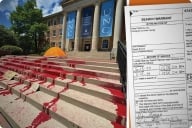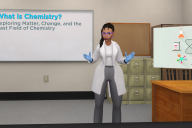You have /5 articles left.
Sign up for a free account or log in.
The popularity of digital humanities has driven the creation of digital humanities centers, the latest of which was announced last week by Vanderbilt University.
The professor who will be leading the new Center for Digital Humanities described in an interview how he plans to promote the idea that digital humanities (and the Vanderbilt center in particular) should help faculty members promote the best possible humanities research -- using digital tools, but first and foremost with a focus on their disciplines.
Helmut Smith, a history professor who will be the director of the center, suggested that those involved in the digital humanities may fall into two camps.
"I guess there are two ways to think about it. One is capital D, Capital h -- that it has a field to itself, that it has its own internal logic that can help other disciplines," Smith said. "The other way is to think about the digital as an adjective and a small letter d and h. That means the emphasis is on the humanities and how digital tools can help the humanities.
"There are great people in both camps," he added. "My own personal predilection is for the second definition -- to ask what can the digital world do for us."
Smith's own research demonstrates the value of this approach, he said. The author of numerous books about Germany, Smith is currently working on an analysis of German history from 1500 to 2000 -- periods in which German borders (and the borders of the states that became Germany in 1871) changed many times. Smith is using digital mapping to examine the impact of those border shifts. And for a chapter on anti-Semitic uprisings, he is also using digital mapping, to show exactly where they took place, allowing more focus on the different patterns in different parts of Germany (or the states that came together to form Germany).
"I want to offer programs to help people who may be stuck in their projects" and for whom digital tools will allow their work to yield new insights, he said.
"The questions ought to be driven less by the technology than by the questions that come up in the field," he said.
The initial center fellows -- faculty members at Vanderbilt -- reflect this approach:
- Lynn Ramey, associate professor of French, is developing immersive 3D environments in research and teaching on the Middle Ages.
- Jane Landers, professor of history, is constructing a digitized archive of endangered sources on the lives of slaves.
- Tracy Miller, associate professor of history of art, is applying digital tools to understanding traditional Chinese architecture.
- Steven Wernke, associate professor of anthropology, is using advanced spatial analysis to enhance archaeological research in the Andes.
But even as the center promotes discipline-based approaches, Smith said, it will welcome people and programs that do start with a digital vision. And it will have support both from Vanderbilt and from the Andrew W. Mellon Foundation, which is providing $1.5 million.
Many graduate students want an emphasis on digital from the start, he said. And the center will work with various Vanderbilt departments to create a joint doctoral program in comparative media analysis and practice. The program will provide a cohort of students with funding for five years in various humanities disciplines and then a sixth year in comparative media analysis and practice.
The Vanderbilt center also plans to extend its work to three other colleges in the region: Berea College, known for its work with the students of Appalachia, and two historically black colleges, Tennessee State University and Tougaloo College.
Many scholars at colleges that are smaller or lack the resources of Vanderbilt may not realize what's possible in the digital humanities, Smith said. The center will be open to those at the three colleges and plan projects with them.
"I would like to emphasize projects that don't have a huge entry barrier, financially and technically," Smith said. "A lot of digital humanities, if you have a computer, you can do it."







